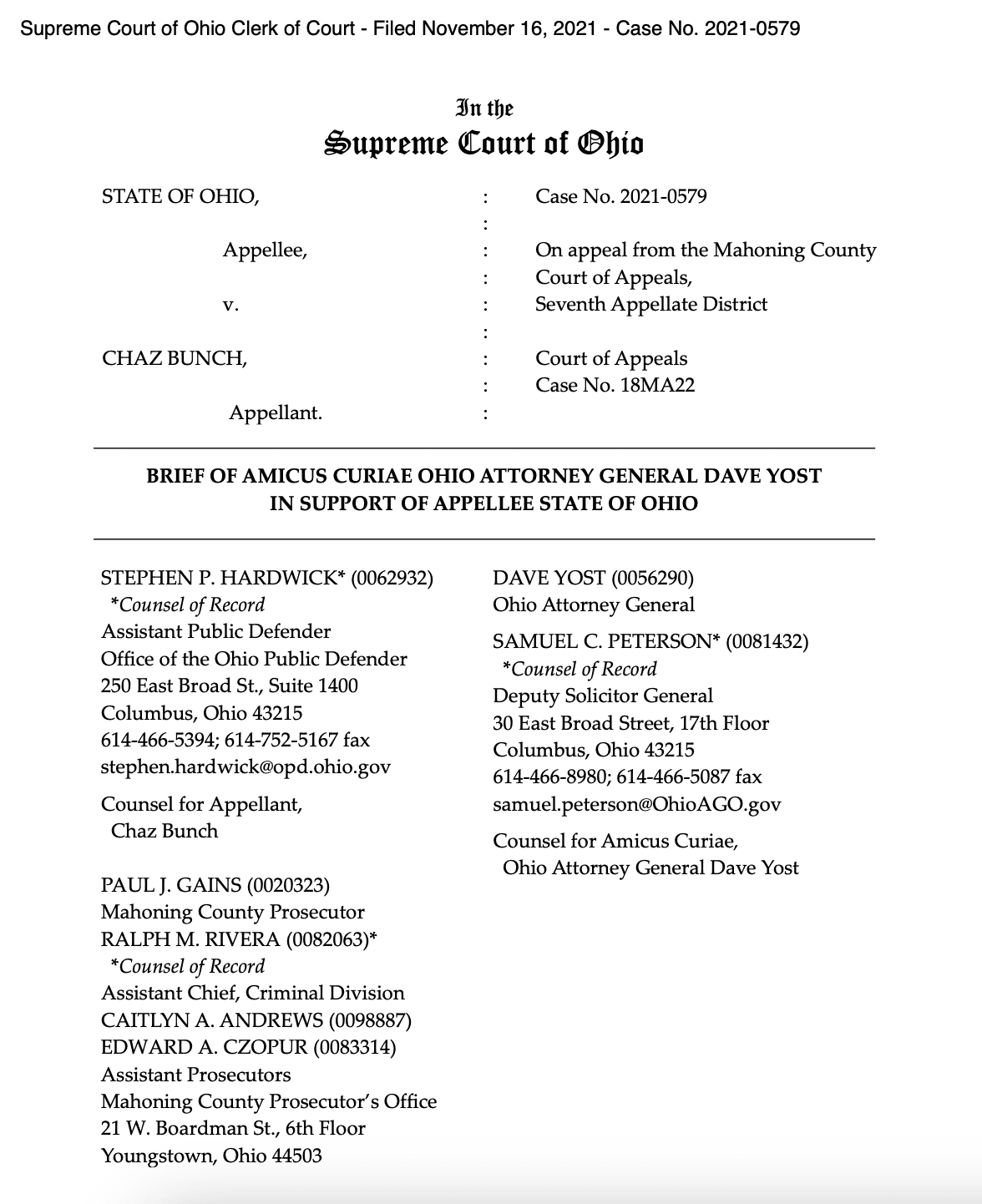
Summary of Argument
The General Assembly has decided that certain juveniles must be transferred to adult criminal court without an amenability hearing. Its decision does not violate the Fourteenth Amendment’s Due Process Clause. That is because juveniles have no right to such a hearing before they are transferred to adult criminal court. Every court to have considered the question has held that “there is no constitutional right to any pre- ferred treatment as a juvenile offender.” Stokes v. Fair, 581 F.2d 287, 289 (1st Cir. 1978); see also, e.g., State v. Orozco, 483 P.3d 331, 337–39 (Idaho 2021). And so the General Assembly was free to decide when and how juveniles must be tried as adults.
This Court has reached the same conclusion, State v. Aalim, 150 Ohio St. 3d 489, 2017-Ohio-2956 (“Aalim II”) and Bunch offers no sound reason why it should revisit it. Bunch asserts a procedural due process challenge to the statutes that require that he be transferred, brought exclusively under the Fourteenth Amendment’s Due Process Clause (that is, and not under Ohio’s Constitution). See Bunch Br.28. His claim is with- out merit. To establish a violation of the Fourteenth Amendment, Bunch would need to show that the absence of an amenability hearing before transfer “offends some principle of justice so rooted in the traditions and conscience of our people as to be ranked as fundamental.” Patterson v. New York, 432 U.S. 197, 202 (1977) (quotation and citation omitted). It does not. Even if the Court were to apply the more permissive procedural- due-process test established by Mathews v. Eldridge, 424 U.S. 319, 335 (1976), the result would not change. The threshold requirement under Mathews is the existence of a pro- tected liberty interest. See Mathews, 424 U.S. at 332, 335. Bunch has not identified one; his unsupported allegation that juveniles have a protected interest in having their case heard by a juvenile court does not suffice. See Bunch Br.29.
The Court should never get that far. It should not address the merits of Bunch’s claim. Bunch did not properly raise his constitutional challenge to R.C. 2152.10(A) and 2152.12(A), and he therefore failed to preserve his claim. If Bunch believed that due- process principles guaranteed him a right to an amenability hearing then he should have raised that claim on direct appeal. See Smith v. May, 159 Ohio St. 3d 106, 2020- Ohio-61, ¶¶31, 35. He did not. Instead, he waited until fifteen years after he was con- victed of a brutal rape and kidnapping to allege that the statutory requirement that cer- tain juveniles be tried as adults is unconstitutional. Because his claim could—and should—have been raised before, it is now barred by res judicata. See id.